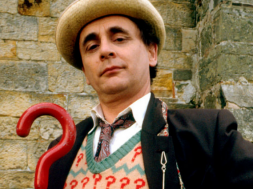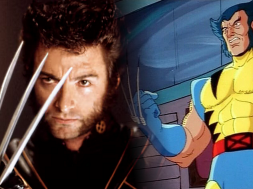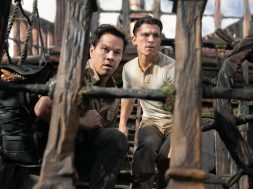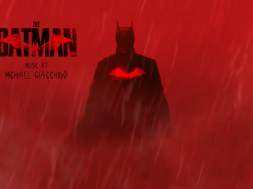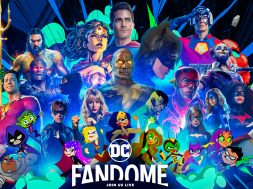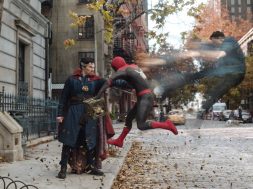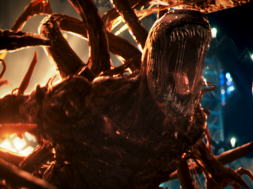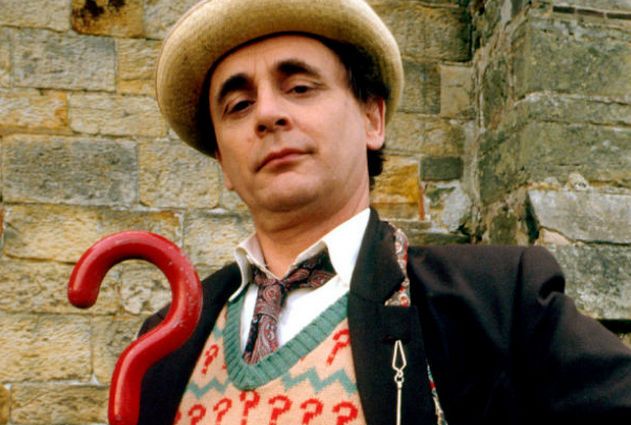

Before any new series of Doctor Who begins, I find a little quiet time to watch some of my old favourites. The much maligned Sylvester McCoy was my first Doctor. Yes, I know that his interpretation of the famous Time Lord is decidedly weaker than the rest but, if it wasn’t for him, I wouldn’t be a fan. Besides, his run was not entirely without merit and there are ideas and achievements here which make for genuinely good television.
For its first two decades, Doctor Who embraced the time it was in and sometimes real world trends and situations, be they cultural or political, managed to play a part in the show. When John Nathan Turner took over as producer there was a lot more focus on monsters, violence and ratings. Having no writing experience, he would give strict demands to the script editors based on vague ideas and then just leave them to it, which resulted in little creativity and much frustration. It wasn’t until The Seventh Doctor when Turner relaxed his demands and the writers began to actually use their own ideas again. Suddenly the stories were a lot more spirited and more of an effort was made to connect with the viewers as contemporary real life issues regarding Thatcherism (The Happiness Patrol), racism (Remembrance of the Daleks) and parenthood (The Curse of Fenric) once again played their part. The show also toned down the violence and began playing with childhood  fears. The Chief Clown in The Greatest Show in the Galaxy certainly wouldn’t have children laughing themselves to sleep. Say what you like, but when Sylvester McCoy arrived, the show was no longer bogged down in padding and continuity and was given a chance to breathe again.
fears. The Chief Clown in The Greatest Show in the Galaxy certainly wouldn’t have children laughing themselves to sleep. Say what you like, but when Sylvester McCoy arrived, the show was no longer bogged down in padding and continuity and was given a chance to breathe again.
To me, low budget production design and special effects were never the problem. It was always how the show used what they had which made it look cheap. More often than not, the much derided ‘wobbly sets’ could have appeared much better with a different camera and lighting setup. The Seventh Doctor era had no such problems. It had more crane shots which meant a broader scope to obscure the flaws. The action sequences had more low angles, tracking shots and, for once, a sense of rhythm thanks to the vastly improved editing. Also, like Jon Pertwee‘s first season, the TARDIS interior scenes were largely scrapped, as were the sets for alien spaceships and planets. This meant more money for costumes and make up, which were utilized brilliantly. The late 80s saw an increase in colour grading too. So a forest or quarry could now be digitally altered to look more alien. All these ideas made for a visual feast and gave Doctor Who a whole new level of excitement.
Okay, so Keff McColloch‘s arrangement of the theme tune is as excruciating as having your eardrums pierced, but the incidental score of the Seventh Doctor’s adventures had a great deal more excitement and suspense than most others before. Electronic orchestration had always been used to convey an other worldly atmosphere but never to this extent and never with such a combination of acoustic instruments and percussion to really rev up the tension. Dominic Glynn created a masterpiece with his score for Survival. The synths, woodwind and electric guitar all compliment each other beautifully and is far more effective than an overblown orchestra.
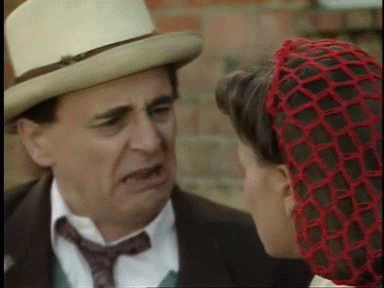 The Seventh Doctor had two companions. The unbearable Bonnie Langford as Mel Bush and Sophie Aldred as Dorothy McShane, better known as Ace. More likely to scream in anger than in terror, Ace was a quick-tempered, fun-loving Earth girl with an enthusiastic grin and a penchant for explosives. Sophie Aldred‘s performance eschewed any tropes associated with strong female characters and played the role as a good female character. Yes, she was brave and didn’t suffer fools gladly but she was also self aware and knew that some problems could not be solved with a baseball bat. Ace was and still is the perfect companion. Not some impossible girl changing the course of The Doctor’s life; she was his friend and ally. While her loyalty to The Doctor was assured, she never needed too much advice from him. At times, it really seemed like he needed her more than she needed him, in a way that was beautifully human.
The Seventh Doctor had two companions. The unbearable Bonnie Langford as Mel Bush and Sophie Aldred as Dorothy McShane, better known as Ace. More likely to scream in anger than in terror, Ace was a quick-tempered, fun-loving Earth girl with an enthusiastic grin and a penchant for explosives. Sophie Aldred‘s performance eschewed any tropes associated with strong female characters and played the role as a good female character. Yes, she was brave and didn’t suffer fools gladly but she was also self aware and knew that some problems could not be solved with a baseball bat. Ace was and still is the perfect companion. Not some impossible girl changing the course of The Doctor’s life; she was his friend and ally. While her loyalty to The Doctor was assured, she never needed too much advice from him. At times, it really seemed like he needed her more than she needed him, in a way that was beautifully human.
Even the most ardent fans of the Sixth Doctor would have to agree that Doctor Who needed a drastic change to salvage it from Colin Baker‘s unpleasant tenure. John Nathan Turner made the wise decision of bringing the show back to its family roots and creating a new series with a new Doctor and a young audience in mind. This Doctor would be playful and friendly while hiding a sense of mystery under his chipper disposition. This was unquestionably a good idea given the negative reaction to the surly Sixth Doctor. But who to cast? Ken Campbell, a tour de force of theatrical comedy was a strong candidate. As was Dermot Crowley, a Cork actor who had also made a name for himself in theatre and television. Ultimately, though, the central role of the greatest 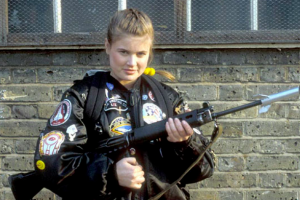 television series ever made went to Sylvester McCoy, a man famous for shoving rodents down his trousers and setting his head on fire. This brought Turner‘s idea to a screeching halt and all the great effects, music, stories and costars were undermined by his buffoonery. The spell that had Doctor Who audiences behind the sofa for years was broken completely.
television series ever made went to Sylvester McCoy, a man famous for shoving rodents down his trousers and setting his head on fire. This brought Turner‘s idea to a screeching halt and all the great effects, music, stories and costars were undermined by his buffoonery. The spell that had Doctor Who audiences behind the sofa for years was broken completely.
But I’m getting sidetracked. My point was never to attack nor defend McCoy‘s Doctor. There are those out there who would ignore his run of episodes completely or, even worse, try and convince new fans to avoid them. This is a great shame. Yes, the lead role doesn’t deliver and no doubt another actor would have been better, but when the stories, effects and atmosphere are this good and the female lead is so frickin’ awesome, there is plenty to recommend about The Seventh Doctor’s adventures. Just try not to think about what could have been.
